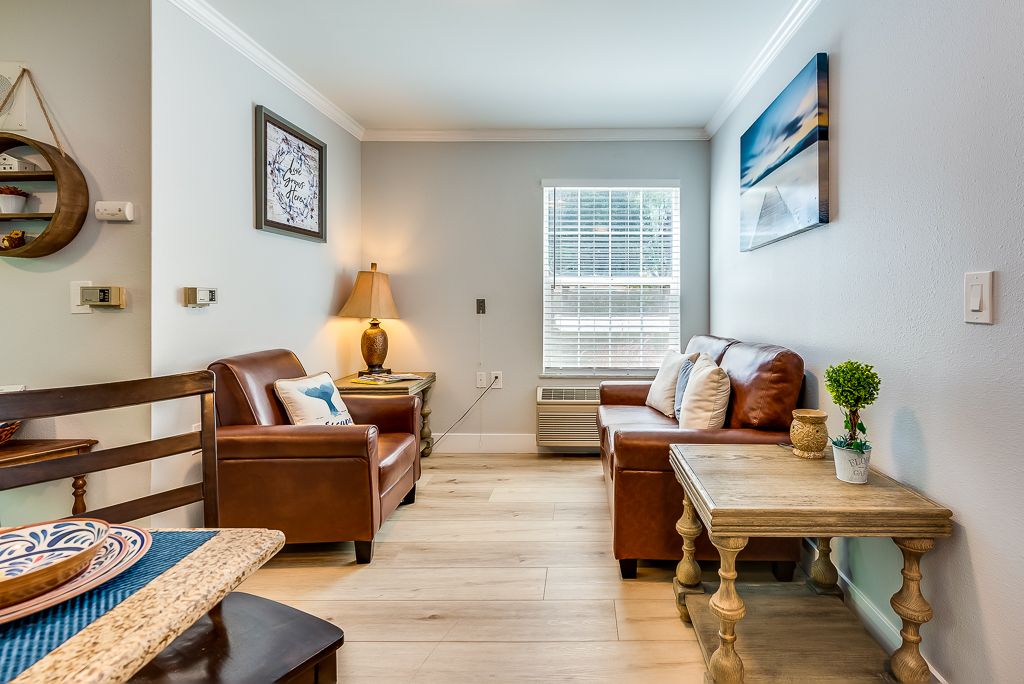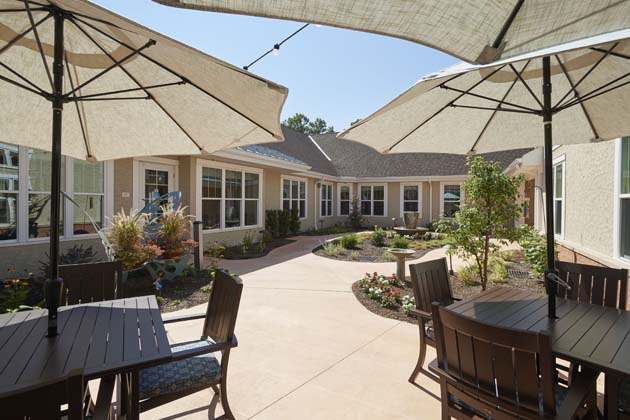Personalized Memory Care for Dementia in a Comforting Space
Personalized Memory Care for Dementia in a Comforting Space
Blog Article
Everything About Memory Care Solutions: Why Small Memory Treatment Residences Are a Great Selection
Memory treatment solutions play an important duty in sustaining individuals with Alzheimer's and mental deterioration. Small memory care homes stand out for their customized approach and intimate setting. With reduced staff-to-resident ratios, these homes cultivate stronger connections and tailored care. Citizens take advantage of boosted social communications and a secure atmosphere. As households explore alternatives, understanding the distinct benefits of small memory treatment homes becomes vital. What elements should be taken into consideration when selecting the appropriate home?
Understanding Memory Treatment Provider
While numerous may be familiar with basic elderly treatment choices, comprehending memory care solutions is essential for families dealing with the challenges of cognitive decrease. Memory care especially satisfies individuals with conditions such as Alzheimer's condition and other kinds of mental deterioration. These solutions give a structured environment that focuses on improving the lifestyle for residents with specialized treatment and support.Memory care centers are designed to guarantee security and safety and security, typically including safeguarded atmospheres to avoid roaming. Trained personnel are readily available all the time to assist with everyday activities, medication monitoring, and individual care. Additionally, memory care programs frequently include cognitive excitement tasks, customized to involve homeowners and advertise psychological well-being. Households can gain from recognizing these solutions, as they allow educated decisions concerning their enjoyed ones' treatment, making certain that their specific needs and preferences are dealt with in a helpful and compassionate fashion.
The Benefits of Small Memory Care Residences
Little memory care homes supply distinct benefits that can significantly enhance the lifestyle for locals with cognitive problems. One substantial benefit is the intimate environment, which permits individualized interactions amongst team and homeowners. This smaller sized setting fosters meaningful partnerships, lowering feelings of seclusion and stress and anxiety often experienced by people with memory issues.Additionally, the reduced staff-to-resident proportion in tiny memory treatment homes enables caretakers to provide even more attentive guidance and assistance. This approach not just enhances safety however additionally advertises a complacency for the residents.Moreover, tiny memory treatment homes can adjust swiftly to the one-of-a-kind requirements and choices of each homeowner, permitting a much more homey atmosphere. Such a setting can motivate social interaction and engagement in activities, eventually enriching the day-to-day experiences of those coping with cognitive impairments.
Personalized Treatment Plans for Residents
Individualized treatment plans are important in memory care homes, as they satisfy the unique requirements and choices of each citizen. These strategies start with thorough assessments carried out by proficient experts, that assess cognitive capabilities, case history, and personal rate of interests. This customized approach warranties that care is not just efficient yet also respectful of each individual's self-respect and autonomy.Moreover, individualized care strategies are adaptable, allowing changes as residents' needs develop over time. This adaptability promotes a feeling of security and knowledge, which is vital for people living with memory challenges. Caregivers are trained to execute these strategies regularly, giving support that aligns with the locals' regimens and preferences.Ultimately, customized care plans enhance the top quality of life for citizens by advertising wellness, freedom, and interaction, making them a fundamental facet of memory care services in small memory care homes.
Producing a Home-Like Setting
Producing a home-like environment is essential for cultivating convenience and knowledge in memory care settings, as it greatly affects homeowners' psychological wellness. Tiny memory treatment homes frequently focus on personalized touches, such as warm color schemes, household images, and acquainted furniture plans, which aid homeowners really feel much more at simplicity. Including components reminiscent of a conventional home, like comfy living rooms and common locations, motivates a feeling of belonging.Moreover, utilizing natural light and outdoor rooms can enhance the environment, promoting relaxation and peace. Team member play a significant function in maintaining this setting by involving with locals in a compassionate fashion, treating them like family. Routine activities, such as food preparation or gardening, can additionally add to a home-like feel, using chances for residents to take part in significant experiences. In general, developing a supporting setting sustains cognitive function and emotional stability, making it an essential element of memory treatment solutions.
Boosted Social Communication and Area
Boosted social communication and community are vital elements of memory treatment solutions. By cultivating individualized social interaction and producing a family-like atmosphere, these solutions advertise significant links amongst locals. Team activities and events even more urge participation, aiding people feel much more included and sustained.
Customized Social Involvement
While social communication is important for total wellness, numerous people with memory impairments often battle to engage meaningfully with others. Customized social involvement in memory treatment homes addresses this obstacle by developing customized activities that satisfy homeowners' one-of-a-kind passions and capacities. By focusing on specific preferences, caretakers can cultivate connections that reverberate deeply with everyone. Tasks such as art treatment, music sessions, and assisted conversations promote cognitive stimulation and emotional expression. In addition, small group settings urge camaraderie and permit for more intimate interactions, improving feelings of belonging. This technique not just deals with feelings of seclusion however also empowers residents to keep a sense of identity, inevitably contributing to improved mental health and wellness and lifestyle.
Family-like Ambience
In a memory treatment setting, fostering a family-like ambience considerably improves social interaction and develops a sense of area amongst residents. Smaller memory care homes frequently prioritize intimate settings, allowing residents to develop closer links with one an additional and team member. This nurturing ambience promotes count on, which is crucial for people with memory impairments. Residents are most likely to talk and share experiences, developing a supportive network that alleviates sensations of loneliness. The experience of common rooms and routines adds to a feeling of belonging, additionally encouraging social communication (personalized memory care). In such setups, emotional bonds grow, leading to enhanced overall health and a greater top quality of life for Read More Here citizens as they navigate their daily experiences with each other
Team Activities and Events

Safety And Security and Security Features in Tiny Homes
Numerous small homes created for memory care include crucial safety and protection functions to guarantee the well-being of citizens. These homes usually make use of safe entry and exit indicate stop straying, a common issue amongst people with memory problems. In addition, surveillance systems and alarm system devices enhance tracking, making certain that personnel can immediately react to any kind of uncommon activities.Interior layouts are customized for safety and security, with minimized dangers such as clutter-free pathways and sharp edges. Handrails and non-slip floor covering are normally set up to reduce the threat of falls. Employee are learnt emergency situation methods, ensuring they are prepared for numerous situations.Moreover, individualized treatment plans may consist of great post to read analysis of specific security requirements, providing tailored remedies for every citizen. Generally, these security and safety and security features produce a caring atmosphere where homeowners can thrive while preserving their self-respect and freedom.
Just how to Choose the Right Memory Care Home
Exactly how can family members guarantee they choose one of the most ideal memory treatment home for their loved ones? The decision requires cautious consideration of a number of variables. Households must review the center's staff certifications and training, making sure that caregivers are experienced in handling memory-related problems. Next off, it's important to examine the home's environment, concentrating on security functions and whether it fosters a sense of look here area and belonging. Seeing the facility can give insight into everyday tasks and the social environment, which are important for psychological stimulation and emotional health. Additionally, households should ask concerning the treatment plans provided, guaranteeing they are customized to individual requirements. Lastly, considering the home's location and ease of access for family members visits can add to a smoother shift. By dealing with these aspects, family members can make an educated decision that prioritizes their liked one's comfort and top quality of life in a memory treatment setup.
Often Asked Questions
What Certifications Should Team Members in Memory Care Houses Have?
Staff participants in memory treatment homes ought to possess pertinent certifications, experience in dementia care, strong communication skills, and concern. Continuous training in behavioral management and healing treatments improves their capacity to sustain residents effectively.
Exactly How Do Memory Care Services Differ From Traditional Assisted Living?
Memory treatment solutions focus especially on people with memory disabilities, supplying customized assistance and structured atmospheres. In comparison, traditional assisted living uses basic support with day-to-day tasks, doing not have the customized strategy needed for those with cognitive difficulties.
What Sorts of Activities Are Used in Memory Treatment Houses?
Memory care homes commonly offer a selection of activities made to involve locals. Usual choices include art therapy, music sessions, cognitive video games, workouts, gardening, and social events, all targeted at improving wellness and cognitive feature.
Can Homeowners Bring Their Own Personal Belongings to Memory Treatment Homes?
Residents can normally bring their own items to memory treatment homes, allowing them to personalize their living room - personalized memory care. This practice assists create an acquainted environment, promoting comfort and a feeling of identification for the individuals

Exactly How Are Relative Involved in the Treatment Process?
Relative play an important duty in the treatment procedure, usually taking part in decision-making, attending treatment meetings, and giving emotional support. Their participation promotes a collective atmosphere, enhancing the homeowner's general wellness and lifestyle. While numerous may be familiar with general elderly care alternatives, understanding memory care solutions is important for families facing the challenges of cognitive decrease. These solutions offer an organized setting that focuses on boosting the top quality of life for homeowners with specialized care and support.Memory treatment facilities are developed to guarantee safety and protection, usually featuring secured settings to avoid wandering. Personalized treatment plans are crucial in memory care homes, as they provide to the special requirements and preferences of each resident. Personnel members in memory care homes need to possess pertinent accreditations, experience in mental deterioration care, strong communication skills, and empathy. Memory care services focus specifically on people with memory disabilities, giving customized support and organized environments.
Report this page